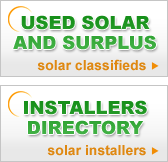Energy efficiency interest rate reduction
program
-
Through the Alaska Housing Finance Corporation, this program offers
a .25% - .50% interest rate reduction to home buyers who purchase
a home with a 5 star plus energy rating.
-
Existing homes with energy improvements are offered a .125% - .750%
interest rate reduction.
-
Interest rates are eligible for the first $200,000 of the purchase
price of the new or existing home.
Second mortgage program for energy conservation
-
This state loan program offers loans up to $30,000 over 15 years
to borrowers who make energy improvements on their homes.
-
The interest rate of the loan is set at the Taxable Program 15-year
rate.
-
All eligible improvements must be listed by an AKWarm certified
energy rater and completed with one year of the loan closing.
Home energy rebate program
-
Through this program, homeowners are eligible to receive a rebate
for some of the expenditures of energy efficiency improvements made
on their home.
-
Qualified improvements for these rebates must be on the energy ratings
improvement options list. Rebates are dependent on receipts and the
amount of efficiency gained.
-
Homeowners may receive rebates up to $10,000 plus $500 for an energy
audit.
-
For qualified new 5 star plus homes, a $7,500 rebate is provided
by this program.
Golden Valley Electric Association – Sustainable natural
alternative power (SNAP) program
-
The SNAP program offers members who install renewable energy generators
connected to their utility’s electrical distribution system
a $/kWh incentive.
-
Depending on the amount contributed through the green pricing program
of the Golden Valley Electric Association, the owner of the renewable
energy generated is paid an incentive amount by the utility.
-
Qualified renewable energy resources for this program include solar
or wind energy, biomass and other alternative energy resources.
Residential Renewable Energy Tax Credit
-
This personal tax credit allows the taxpayer to claim a credit
of 30% of expenditures including labor costs and installation of qualified
residential solar-electric systems, solar water heating systems or
fuel cells. Small wind-energy systems and geothermal heat pumps can
also be accredited for.
-
Solar-electric systems and solar water heaters have a maximum incentive
of $2,000 if placed in service before 2009. There is no maximum incentive
for systems placed after 2008.
-
The excess amount of the federal tax credit may be carried forward
to the next taxable year if it exceeds tax liability.
Residential Energy Conservation Subsidy Exclusion
-
This is a personal exemption of 100% of energy conservation subsidies
provided by public utilities.
-
The value of a purchase or installation of any energy conservation
measure by a customer such as solar water heat, solar space heat or
photovoltaics will not be included in the customer’s gross income.
-
Customers of an electric utility company, who participate in the
utility’s energy conservation program, may receive a rate reduction
of electricity furnished or a nonrefundable credit against the purchase
price of the electricity on each monthly electric bill.
Energy-Efficient Mortgages



